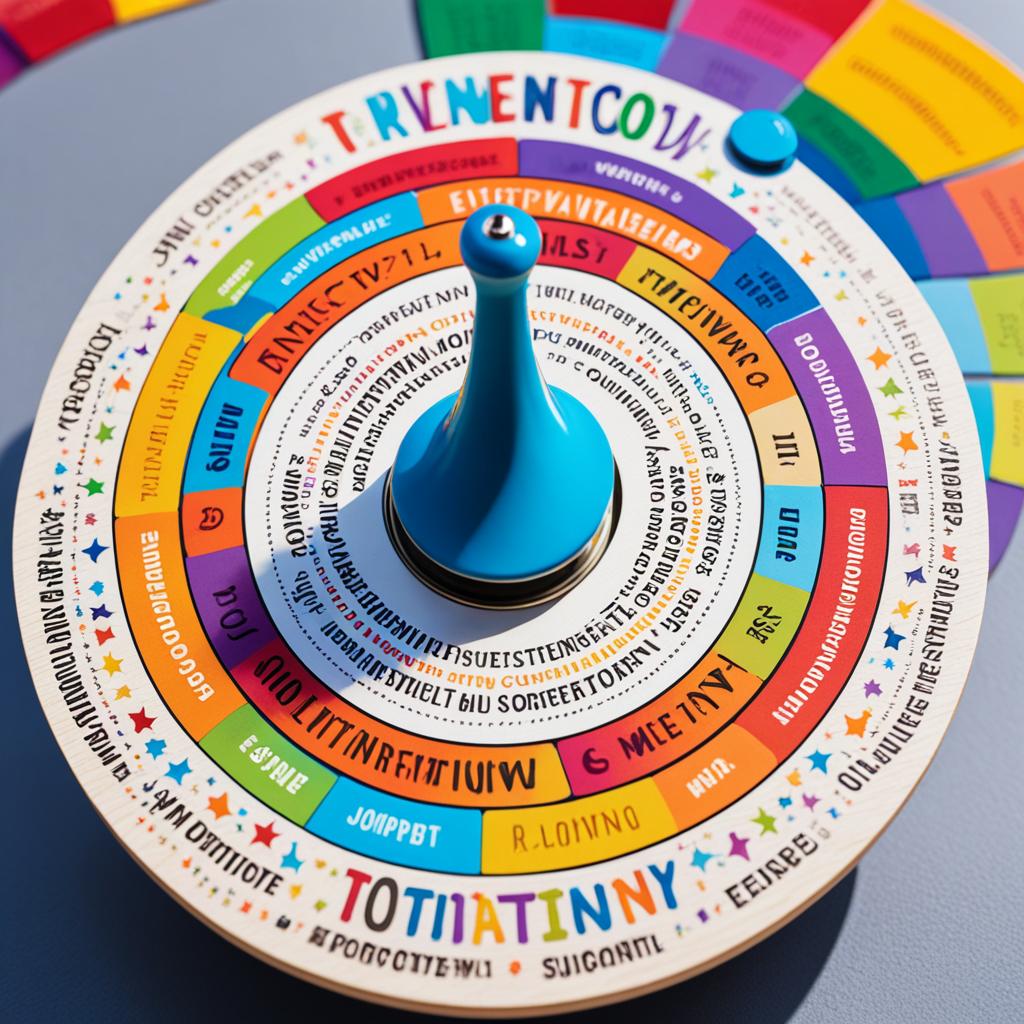Did you know that motivation is the key to unlocking our potential for success and achievement? It is the driving force behind our actions, influencing our behaviors, attitudes, and goals. Without motivation, we may find ourselves stagnant, lacking the determination and focus needed to pursue our dreams.
In this article, we will delve into the fascinating world of The Psychology of Motivation, exploring the inner workings of our minds and uncovering the factors that truly drive us toward success. From the fundamental concepts of motivation to the role of rewards and punishments, goal-setting, self-efficacy, and even the power of positive thinking, we will discover how understanding motivation can empower us to achieve our goals and lead fulfilling lives.
Join us as we unravel the mysteries of motivation and uncover the secrets to unlocking our full potential. Let’s embark on this journey together and unleash the power within us to succeed!
Understanding Motivation
When it comes to achieving our goals and driving success, understanding the psychology of motivation is essential. Motivation serves as the driving force that compels us to take action and pursue our aspirations, constantly pushing us towards growth and achievement.
At its core, motivation refers to the inner drive and enthusiasm that fuels our behavior and actions. It is influenced by a variety of factors, including our desires, needs, beliefs, values, and emotions. By understanding the fundamental concepts and theories behind motivation, we can gain insights into what motivates us and others, and how we can harness this intrinsic drive to reach greater heights.
The psychology of motivation delves into the inner workings of human behavior, exploring the underlying factors that trigger motivation and the impact it has on our actions. Motivation can be categorized into different types, including intrinsic motivation and extrinsic motivation. Intrinsic motivation arises from within, driven by internal factors such as personal satisfaction, interest, and passion. On the other hand, extrinsic motivation is influenced by external rewards, recognition, or consequences.
In order to tap into our inner motivation, it is crucial to understand the psychological factors that influence our drive. Self-efficacy, or the belief in our own abilities, plays a significant role in shaping our motivation levels. When we have confidence in ourselves and our capabilities, we are more likely to feel motivated to take on challenges and persevere in the face of obstacles.
“Motivation is the catalyst that transforms dreams into reality.”
By embracing a positive mindset, we can further enhance our motivation. Positive thinking allows us to focus on solutions rather than problems, enabling us to overcome setbacks and stay motivated in pursuit of our goals. Cultivating a sense of optimism and resilience can help us maintain our motivation even in challenging circumstances.
Furthermore, emotions play a pivotal role in motivation. Passion, excitement, and enthusiasm can serve as powerful motivators, driving us to invest time and effort in activities that align with our interests and values. By tapping into our emotions and passions, we can fuel our motivation and experience a deeper sense of fulfillment.
The psychology of motivation offers valuable insights into the factors that drive human behavior and lead to achievement. By understanding the psychology behind motivation, we can cultivate our inner motivation, set meaningful goals, overcome obstacles, and ultimately achieve the success we desire.
Key Points:
- Motivation is the driving force that compels us to take action and pursue our goals.
- Understanding the psychology of motivation helps us tap into our inner motivation and reach greater heights.
- Motivation can be categorized into intrinsic and extrinsic motivation.
- Self-efficacy and positive thinking play important roles in enhancing motivation.
- Emotions, such as passion and excitement, can fuel motivation and lead to greater success.


Intrinsic vs Extrinsic Motivation
When it comes to motivation, there are two primary driving forces at play: intrinsic motivation and extrinsic motivation. While both types can push us to achieve our goals, understanding the differences between them can help us harness their power more effectively.
Intrinsic motivation refers to the internal drive and desire to engage in an activity for its own sake. It arises from our personal interest, enjoyment, or passion for a particular task or goal. Individuals who are intrinsically motivated find satisfaction, fulfillment, and a sense of accomplishment in the process of pursuing their objectives. This internal drive is often fueled by factors such as autonomy, mastery, and a sense of purpose.
On the other hand, extrinsic motivation relies on external factors to drive our behavior. It involves seeking rewards, recognition, or avoiding punishments from outside sources. This type of motivation can come in various forms, such as financial incentives, praise, or fear of negative consequences. While extrinsic motivation can be effective in initiating action, it may not provide the same level of fulfillment and long-term commitment as intrinsic motivation.
The impact of intrinsic and extrinsic motivation on our levels of commitment and satisfaction can vary. Research shows that individuals driven by intrinsic motivation tend to display higher levels of engagement, persistence, and creativity in their endeavors. They are more likely to enjoy the process and persist even when faced with challenges. In contrast, individuals who heavily rely on extrinsic motivation may have lower levels of commitment and satisfaction, as their actions are primarily driven by external rewards rather than genuine interest or passion.
Understanding the key differences between intrinsic and extrinsic motivation can empower us to tap into our internal drive and cultivate a deeper sense of motivation and fulfillment in pursuing our goals.
To effectively harness the power of motivation, it is important to strike a balance between intrinsic and extrinsic factors, aligning them with our values and aspirations. By cultivating our internal drive and finding genuine enjoyment in our pursuits, we can unlock our full potential and create meaningful achievements.
The Role of Rewards and Punishments
In the realm of motivation psychology, the use of rewards and punishments plays a significant role in shaping our behavior and decision-making processes. The reward system, with its enticing promises of recognition, praise, or tangible incentives, has the power to inspire and drive us towards achieving our goals. On the other hand, the effects of punishment can be equally profound, serving as a deterrent or consequence that influences our choices and actions.
When it comes to rewards, they can activate the brain’s pleasure centers, triggering a sense of accomplishment and satisfaction. This positive reinforcement strengthens neural pathways associated with the desired behavior, increasing the likelihood of its repetition in the future. Rewards can range from small acknowledgments and compliments to coveted prizes or promotions, depending on the context and individual preferences.
Conversely, punishments have their own effects on motivation. They can create aversive experiences or consequences, discouraging behaviors that are not aligned with desired outcomes. The fear of punishment, whether it be a reprimand, loss of privileges, or negative feedback, can act as a powerful deterrent, influencing our decisions and prompting us to choose alternatives that avoid such consequences.
The Effectiveness of Rewards and Punishments
While rewards and punishments can be effective in motivating behavior, their impact varies depending on factors such as personal values, intrinsic motivation levels, and the nature of the task or goal. The overreliance on rewards or punishments can sometimes have unintended consequences, such as diminishing intrinsic motivation or fostering a reliance solely on external incentives.
In the words of psychologist Edward L. Deci, “Promised rewards tend to undermine intrinsic motivation.” This highlights the importance of balancing the use of rewards and punishments with building internal drive and fostering a sense of autonomy.
Some individuals may respond well to external motivators, finding them as affirmations of their efforts and goals. Others, however, may find their intrinsic motivation overshadowed by the focus on rewards or punishments, leading to a decline in enjoyment and engagement. Striking a balance that aligns rewards and punishments with individual goals and values is key to maximizing motivation and maintaining long-term commitment.
The Role of Intent and Feedback
When implementing rewards and punishments, the underlying intent behind their use can greatly influence their effectiveness. If rewards or punishments are perceived as fair and justified, they are more likely to be accepted and incorporated into the motivation psychology framework. Clear communication of expectations, accompanied by constructive feedback, can also enhance motivation by providing individuals with a sense of progress and areas for improvement.
Ultimately, a well-designed reward system that acknowledges achievements and a fair system of consequences for undesirable behavior can effectively shape behavior, ensuring the desired outcomes are encouraged and maintained. Understanding the role of rewards and punishments within the broader context of motivation psychology allows us to harness their potential to drive success and achievement in both personal and professional endeavors.


Goal Setting and Achievement
Setting goals is a powerful tool that can propel us towards success and fulfillment in various areas of our lives. When we have clear objectives, it becomes easier to channel our efforts, stay motivated, and achieve the results we desire. Goal-setting taps into our intrinsic motivation, driving us to take purposeful action and overcome obstacles along the way.


Whether it’s in our personal or professional endeavors, having well-defined goals provides a roadmap and a sense of direction. Setting specific, measurable, achievable, relevant, and time-bound (SMART) goals allows us to break down our bigger aspirations into manageable steps, increasing our chances of success.
As Zig Ziglar once said:
“A goal properly set is halfway reached.”
By setting goals, we become goal-oriented individuals who exhibit behaviors aligned with achieving our desired outcomes. This goal-oriented behavior is rooted in our achievement motivation, the inner drive that compels us to strive for excellence and accomplish meaningful milestones.
Goal setting not only motivates us but also enhances our focus, perseverance, and self-discipline. It transforms our aspirations into tangible targets, providing a sense of clarity and purpose. With each milestone accomplished, we are encouraged to aim higher and continue growing.
Moreover, setting goals helps us identify our priorities and allocate our resources effectively. It allows us to evaluate our progress and make necessary adjustments to stay on track. The act of regularly reviewing our goals keeps us accountable and empowers us to make purposeful decisions that align with our long-term vision.
The Benefits of Goal Setting:
- Increased motivation and drive
- Improved focus and clarity
- Enhanced self-discipline and perseverance
- Opportunities for growth and personal development
- Greater sense of fulfillment and accomplishment
By harnessing the power of goal setting, we can unlock our true potential and achieve remarkable results. So take the time to define your goals, create a plan of action, and commit to pursuing them with determination and passion. Remember, every great achievement begins with a goal in mind!
Self-Efficacy and Motivation
Self-efficacy, or the belief in oneself, plays a crucial role in shaping our motivation levels and driving us towards achieving our goals. When we have a strong sense of self-efficacy, we believe that we have the capabilities to overcome challenges and succeed in our endeavors.
Research has consistently shown that individuals with high levels of self-efficacy are more likely to set challenging goals, maintain motivation in the face of obstacles, and persevere until they achieve their desired outcomes. This belief in our own abilities acts as a powerful motivator, influencing our thoughts, emotions, and actions.
Enhancing self-efficacy requires a combination of self-reflection, self-awareness, and goal-setting. By identifying and acknowledging our strengths and past successes, we can build a solid foundation of self-belief. Additionally, adopting a growth mindset, where we embrace challenges as opportunities for learning and growth, can further strengthen our self-efficacy.
One effective strategy to enhance self-efficacy is through the process of mastery experiences. By actively seeking out and engaging in activities that align with our interests and passions, we can gain hands-on experience and develop a track record of success. This accumulation of small wins reinforces our belief in ourselves and boosts our motivation to take on more significant challenges.


Furthermore, social modeling, or observing others who have achieved similar goals, can also inspire and strengthen our self-efficacy. By seeking out role models and mentors who have overcome similar obstacles, we can gain valuable insights and learn from their experiences.
Lastly, verbal persuasion and positive feedback from others can significantly impact our self-efficacy. Surrounding ourselves with supportive individuals who provide encouragement and constructive feedback can help us build confidence in our abilities and maintain a high level of motivation.
In conclusion, self-efficacy is a crucial factor in driving our motivation levels. By cultivating a belief in ourselves and adopting strategies to enhance our self-efficacy, we can fuel our motivation, overcome obstacles, and achieve our goals.
The Power of Positive Thinking
When it comes to motivation, the power of positive thinking cannot be underestimated. A positive mindset can significantly impact our drive, resilience, and overall motivation to achieve our goals.
Optimism plays a crucial role in maintaining a positive mindset. It allows us to see challenges as opportunities for growth and learning, rather than obstacles that hold us back. By adopting an optimistic outlook, we can cultivate a sense of hope and belief in our ability to overcome obstacles and achieve success.
Motivation techniques that harness the power of positive thinking can help us stay focused, inspired, and driven. Here are a few strategies to cultivate a positive mindset:
- Practice gratitude: Expressing gratitude for the things we have can shift our focus from what’s lacking to what’s already abundant in our lives. This can boost our positivity and motivation.
- Visualize success: Visualizing ourselves achieving our goals can create a powerful sense of motivation. By vividly imagining our desired outcomes, we generate enthusiasm and determination to take action.
- Affirmations: Using positive affirmations can rewire our thoughts and beliefs, transforming negative self-talk into empowering statements. Repeat affirmations that reflect our goals and aspirations to bolster motivation.
- Foster a supportive environment: Surrounding ourselves with positive, like-minded individuals who uplift and encourage us can have a profound impact on our motivation levels. Seek out individuals who share our goals and values.
The key to harnessing the power of positive thinking lies in consistent practice and adopting it as a way of life. By nurturing a positive mindset and integrating motivation techniques, we can fuel our drive and resilience in the face of challenges, ultimately leading us closer to achieving our goals.


The Role of Emotions in Motivation
Emotions play a significant role in our motivation to pursue our goals and dreams. They have the power to ignite our passions, energize us, and drive us towards success. When we tap into our emotional motivation, we unlock a powerful force that propels us forward with unwavering determination.
Passion is a key factor that connects our emotions to our motivation. When we are passionate about something, whether it’s a personal aspiration or a professional endeavor, our emotions become deeply intertwined with our desire to succeed. This emotional connection fuels our motivation and keeps us focused and dedicated.
Furthermore, motivational factors such as a sense of purpose, meaning, and fulfillment are closely linked to our emotions. When we engage in activities or pursue goals that align with our values and bring us joy, our motivation soars. We become driven by a deep sense of satisfaction and fulfillment that keeps us motivated, even in the face of challenges.
“Emotional motivation is the fuel that propels us forward, allowing us to overcome obstacles and achieve greatness.”
In addition, emotions have the power to influence our mindset and outlook on life. When we maintain a positive and optimistic attitude, our motivation remains high. We are more resilient and better equipped to handle setbacks, as our emotional motivation helps us bounce back and refocus on our aspirations.
It’s important to recognize and embrace the role of emotions in motivation. By acknowledging our passions, understanding our emotional triggers, and nurturing a positive mindset, we can harness our emotional motivation to propel us forward on our path to success.
Overcoming Procrastination and Lack of Motivation
Procrastination and lack of motivation can be major roadblocks on the path to success. However, by implementing effective strategies and maintaining motivation, you can overcome these obstacles and make consistent progress towards your goals.
1. Break Tasks Into Smaller Steps
One of the main reasons for procrastination is feeling overwhelmed by the size or complexity of a task. To overcome this, break down your goals into smaller, manageable steps. This allows you to focus on each step individually, making it easier to start and maintain momentum.
2. Set Clear and Specific Goals
Having clear and specific goals gives you a sense of direction and purpose, making it easier to stay motivated. Set SMART goals – ones that are specific, measurable, achievable, relevant, and time-bound. This clarity will help you stay focused and determined.
3. Create a Schedule and Stick to It
Procrastination often occurs when there is no structure or deadline for completing tasks. Create a schedule or to-do list, prioritizing your tasks and allocating specific time slots for each. By following a structured plan, you’ll avoid wasting time and stay motivated to accomplish your goals.
“Procrastination is the art of keeping up with yesterday.” – Don Marquis
4. Find Your Motivation Triggers
Identify what motivates you and use it to your advantage. Whether it’s visualizing your success, seeking inspiration from others, or rewarding yourself for completing tasks, tapping into your motivation triggers can help you stay on track and maintain momentum.
5. Seek Accountability and Support
Share your goals and progress with others who can hold you accountable. This might involve finding an accountability partner or joining a supportive community. Surrounding yourself with like-minded individuals who understand your ambitions can provide valuable encouragement and motivation.
Remember, overcoming procrastination and maintaining motivation is an ongoing process. It requires consistent effort and a commitment to self-discipline. By implementing these strategies and staying determined, you can overcome procrastination and achieve the success you desire.
Motivation in Different Contexts
Understanding motivation is essential for achieving success in various areas of our lives. Motivation plays a crucial role not only in personal development but also in different contexts such as the workplace, academia, and sports. In these environments, motivation can be influenced by different factors and can have a significant impact on individuals and teams alike.
Workplace Motivation
Workplace motivation is vital for creating a productive and engaged workforce. When employees are motivated, they are more likely to perform at their best and contribute to the success of the organization. Factors such as recognition, opportunities for growth and advancement, a supportive work environment, and meaningful work contribute to workplace motivation. Employers can foster motivation by providing clear goals, offering incentives and rewards, promoting a positive work culture, and encouraging open communication.
Academic Motivation
In the academic setting, motivation plays a crucial role in students’ learning and achievement. Students who are motivated are more likely to be actively engaged in their studies, set goals, and persist in the face of challenges. Intrinsic motivation, which comes from within, is considered more beneficial for academic success compared to extrinsic motivation, which is driven by external rewards. Teachers and parents can foster academic motivation by creating a supportive and stimulating learning environment, setting high but achievable expectations, and providing opportunities for autonomy and student choice.
Intrinsic Motivation in Sports
Intrinsic motivation plays a significant role in sports as athletes find joy, satisfaction, and personal fulfillment in participating in their chosen activities. When athletes are intrinsically motivated, they are more likely to put in extra effort, persevere in the face of obstacles, and enjoy the process of improvement. Coaches can foster intrinsic motivation by emphasizing skill development, providing opportunities for autonomy and decision-making, promoting a positive and supportive team culture, and recognizing athletes based on their effort and growth rather than just outcomes.
Understanding and fostering motivation in different contexts is crucial for achieving success and satisfaction. Whether in the workplace, academia, or sports, individuals and organizations can benefit from creating environments that support and nurture intrinsic motivation, as it is often linked to greater engagement, performance, and overall well-being.
Conclusion
After exploring the fascinating field of motivation psychology, we have gained valuable insights into what truly drives us toward success and achievement. Understanding the inner workings of motivation can empower us to harness its power and propel ourselves towards our goals.
Throughout this article, we have learned about the fundamental concepts and theories behind motivation, including the difference between intrinsic and extrinsic motivation. We have delved into the role of rewards and punishments, the power of goal-setting, the influence of self-efficacy, and the impact of positive thinking and emotions on motivation.
Moreover, we have discovered effective strategies for overcoming procrastination and maintaining motivation over the long term. We have also examined how motivation varies in different contexts such as the workplace, academia, and sports, and explored techniques to foster motivation in these areas.
By applying the principles and techniques we have explored, we can tap into our internal drive and leverage the psychology of motivation to our advantage. Let us embrace the power of motivation, cultivate a positive mindset, set meaningful goals, and believe in ourselves. Through the understanding of motivation psychology, we can drive our success and achieve our aspirations.
